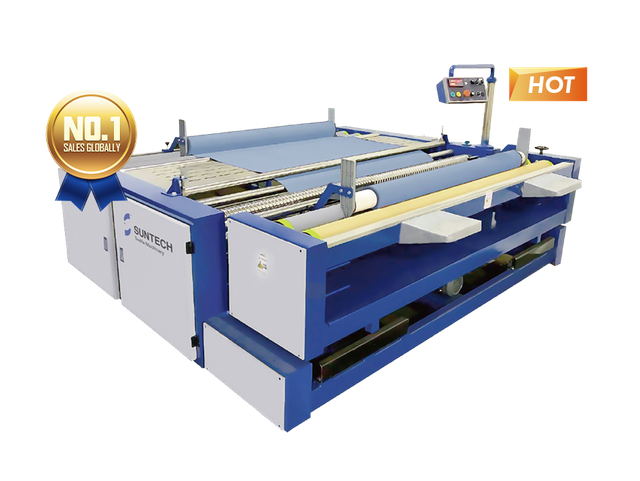Choosing the right fabric relaxing machine for your manufacturing operation is a critical decision that can significantly impact the efficiency and quality of your production process. This article will guide you through the essential considerations and provide insights into making an informed choice.

Understanding the Role of a Fabric Relaxing Machine
A fabric relaxing machine is designed to eliminate tension and distortions in fabric that occur during the manufacturing process. This step is crucial as it ensures the fabric maintains its intended dimensions and properties, leading to higher quality end products. By relaxing the fabric, manufacturers can avoid issues such as shrinkage and misalignment during subsequent processing stages.
Key Factors to Consider When Choosing a Fabric Relaxing Machine
When selecting a fabric relaxing machine, several factors must be taken into account to ensure it meets your specific needs. Here are some critical considerations:
1. Fabric Type and Characteristics
The type of fabric you are working with plays a significant role in determining the appropriate machine. Different fabrics have varying levels of elasticity, thickness, and sensitivity to tension. For instance, delicate fabrics like silk require a gentler relaxing process compared to more robust materials like denim.
Example: If your operation primarily deals with knit fabrics, you would need a machine that can handle the high elasticity and potential for distortion inherent in these materials.
2. Production Volume and Speed
Your production volume and speed requirements will influence the type of fabric relaxing machine you need. High-volume operations may benefit from automated machines that can process large quantities of fabric quickly and efficiently. Conversely, smaller operations might prioritize precision and flexibility over speed.
Example: A large-scale garment manufacturer would benefit from a high-capacity machine that can handle continuous operation, whereas a boutique fabric producer might opt for a machine that offers more control and customization options.
3. Machine Features and Capabilities
Modern fabric relaxing machines come with a variety of features designed to enhance performance and ease of use. Key features to look for include adjustable tension settings, automated feeding systems, and integrated quality control mechanisms. Additionally, consider the machine's compatibility with other equipment in your production line.
Example: A machine with an automated feeding system can significantly reduce manual labor and increase overall efficiency, making it ideal for high-throughput operations.
4. Maintenance and Support
Regular maintenance is essential to keep your fabric relaxing machine running smoothly. When choosing a machine, consider the availability of technical support and the ease of obtaining replacement parts. A reliable manufacturer should offer comprehensive support services to minimize downtime and ensure your machine operates at peak performance.
Example: Opting for a machine from a manufacturer with a strong reputation for customer service can save you time and money in the long run by providing prompt assistance and readily available parts.
Conclusion
In conclusion, selecting the right fabric relaxing machine for your manufacturing operation involves careful consideration of various factors, including fabric type, production volume, machine features, and maintenance requirements. By understanding these elements and evaluating your specific needs, you can make an informed decision that enhances your production efficiency and product quality.
Remember, the right fabric relaxing machine is an investment in the future success of your manufacturing operation. Take the time to research and choose wisely, ensuring your operation runs smoothly and produces high-quality products consistently.



